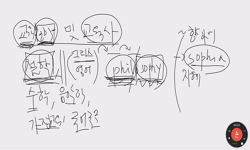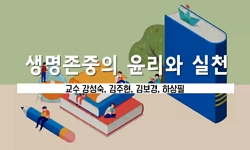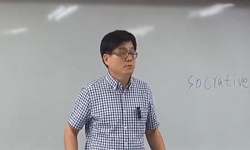This paper diagnosed that the elderly in Korea, a super-aged society, are not comfortable, and saw that the fundamental reason for this comes from the absence of philosophical thinking and philosophical life on issues such as human existence, emotions...
http://chineseinput.net/에서 pinyin(병음)방식으로 중국어를 변환할 수 있습니다.
변환된 중국어를 복사하여 사용하시면 됩니다.
- 中文 을 입력하시려면 zhongwen을 입력하시고 space를누르시면됩니다.
- 北京 을 입력하시려면 beijing을 입력하시고 space를 누르시면 됩니다.

율곡철학 기반의 웰에이징 철학교육 필요성 - 철학실천적 웰에이징 철학교육 프로그램 연구 = The Need for Well-Aging Philosophy Education Based on Yulgok Philosophy: A Study on Philosophical Practical Well-Aging Philosophical Education Program
한글로보기https://www.riss.kr/link?id=A109647457
-
저자
황정희 (서강대학교 생명문화연구소)
- 발행기관
- 학술지명
- 권호사항
-
발행연도
2025
-
작성언어
Korean
-
주제어
Super-aged Society ; Well-Aging ; Yulgok Philosophy ; Philosophy Practice ; Philosophy Education ; 초고령사회 ; 웰에이징 ; 율곡철학 ; 철학실천 ; 철학교육
-
등재정보
KCI등재
-
자료형태
학술저널
-
수록면
65-90(26쪽)
- DOI식별코드
- 제공처
-
0
상세조회 -
0
다운로드
부가정보
다국어 초록 (Multilingual Abstract)
Yulgok's discussions of ‘harmonious sum of li and qi’, ‘li is universal and qi is individual’, and ‘qi works and li rides’ help to think about the transcendence of the human mind and the limitations of the body as a theoretical basis for the universe and human existence. In addition, through theories on the structure and action of the mind, the theory of the mind, such as ‘heart, nature, affection, and righteousness are in order’, allows us to understand the feelings of ourselves and others, consideration and empathy, as well as the possibility of conflict and antagonism, and to think about its resolution. Yulgok emphasized a philosophical and practical life, and he suggested specific methods of cultivation through texts such as Seonghakjipyo and Gyeokmongyogyeol, and emphasized that the effects of life should be revealed concretely through g thought.
The well-aging philosophy education program presented based on this Yulgok philosophy can help all generations think about the philosophical meaning of well-aging in a super-aged society and suggest specific ways to live.
This paper diagnosed that the elderly in Korea, a super-aged society, are not comfortable, and saw that the fundamental reason for this comes from the absence of philosophical thinking and philosophical life on issues such as human existence, emotions, and relationships. Therefore, philosophical well-aging was newly defined by adding philosophical meaning to the existing meaning of well-aging. And he suggested a philosophical education program based on the ontology, mind theory, and cultivation theory of Yulgok philosophy, as he saw the need for philosophical education for well-aging across all generations.
Yulgok's discussions of ‘harmonious sum of li and qi’, ‘li is universal and qi is individual’, and ‘qi works and li rides’ help to think about the transcendence of the human mind and the limitations of the body as a theoretical basis for the universe and human existence. In addition, through theories on the structure and action of the mind, the theory of the mind, such as ‘heart, nature, affection, and righteousness are in order’, allows us to understand the feelings of ourselves and others, consideration and empathy, as well as the possibility of conflict and antagonism, and to think about its resolution. Yulgok emphasized a philosophical and practical life, and he suggested specific methods of cultivation through texts such as Seonghakjipyo and Gyeokmongyogyeol, and emphasized that the effects of life should be revealed concretely through g thought.
The well-aging philosophy education program presented based on this Yulgok philosophy can help all generations think about the philosophical meaning of well-aging in a super-aged society and suggest specific ways to live.
동일학술지(권/호) 다른 논문
-
- (사)율곡학회
- 이종성
- 2025
- KCI등재
-
근대기 청원ㆍ보은지역 함종어씨가의 도학정신 및 현실 대응
- (사)율곡학회
- 김문준
- 2025
- KCI등재
-
기호유학의 여성친화적 철학과 현대사회 갈등 해법(Ⅰ) - 여성 성리학자 임윤지당, 이사주당, 강정일당을 중심으로
- (사)율곡학회
- 이영자
- 2025
- KCI등재
-
관산(管山) 안정회(安貞晦): 잊혀진 노사문인을 찾아서 - 『관산유고(管山遺稿)』를 중심으로
- (사)율곡학회
- 이향준
- 2025
- KCI등재




 KCI
KCI KISS
KISS






